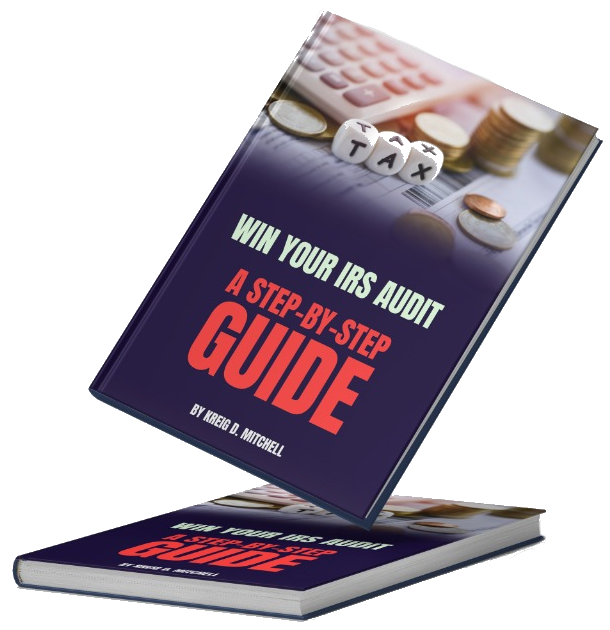In tax disputes between taxpayers and the IRS, the burden of proof lies with the IRS to prove that a taxpayer earned more income than reported. The IRS has to have some evidence.
These rules are set out in Section 7491, which shifts the burden of proof to the IRS, making it more difficult for the IRS to successfully assert a deficiency.
The recent Allman v. Commissioner, T.C. Summary Opinion 2006-191 case, shows how this works. The IRS attorney in this case showed up to court with no evidence of additional income, resulting in a victory for the taxpayer.
Contents
Facts & Procedural History
The taxpayer worked as an employee for eleven and a half months in 2003. He worked for a construction company for the remainder of the year and he was paid “under the table” for this work.
The IRS audited his return or sent an adjustment notice. The IRS proposed to increase his income as it asserted that the taxpayer failed to report interest income from two insurance policies, underreported his income, and failed to pay self-employment taxes.
The IRS did not agree with the taxpayer and tax litigation ensued. Despite appearing to be a typical scenario where the taxpayer would not come out on top, the outcome of the case was surprising as they did not lose. The expected result based on the circumstances would have been unfavorable for the taxpayer, but contrary to expectations, they emerged victorious.
The Taxpayer’s Evidence
The taxpayer testified that he did not own insurance policies and did not receive interest income from an insurance policy and, therefore, he did not report the interest income on his tax return.
The taxpayer then argued that his employer, the construction company that paid him “under the table,” had overstated the amount it paid to him on the Form 1099 that it reported to the IRS.
The taxpayer was paid cash, so there were no records of how much he was paid. The taxpayer testified that he worked 35 hours per week for 27 days at $12.50 per hour (with two weeks off for the holidays).
The taxpayer argued that he was an employee of the construction company and not an independent contractor. As such, he was not responsible for paying self-employment taxes. The taxpayer testified that his manager directed him as to what to do for this position, he used the construction company tools, and he did not sign an employment agreement with the construction company.
The net result was income lower than that determined by the IRS and no self-employment tax on the earnings.
The IRS’s Evidence
The IRS attorney presented no evidence to counter the taxpayer’s testimony.
The IRS attorney cited only the amount listed on the construction company’s Form 1099. The IRS attorney did not present any evidence that the taxpayer worked more than the hours that he had testified to.
Because the IRS attorney failed to put on any of this evidence, the court held for the taxpayer on each issue.
The IRS Has the Burden
Why did the court reach this conclusion? The IRS attorney’s lack of evidence was a factor. It was a factor as the IRS has the burden of proof for items of income.
This is set out in Section 7491. Section 7491 outlines the burden of proof in tax disputes between taxpayers and the IRS. It says that if the taxpayer produces credible evidence regarding any factual issue relevant to ascertaining the taxpayer’s liability, the burden of proof will shift to the IRS to prove such issue. However, this provision does not apply to certain issues, such as the taxpayer’s failure to cooperate with the IRS or provide complete and accurate information.
The courts have expanded on this in cases like Portillo v. Commissioner, 932 f.2d 1128 (5th Cir. 1991). The Portillo court case is a notable example that applied the provisions of Section 7491. In Portillo, the IRS had issued a notice of deficiency to the taxpayer, alleging that they had underreported their income for several years. The taxpayer disputed the deficiency and argued that the IRS had failed to meet their burden of proof under Section 7491. The court agreed with the taxpayer and held that the burden of proof had indeed shifted to the IRS to prove the deficiency. Since the IRS was unable to produce sufficient evidence to support their claim, the court ruled in favor of the taxpayer.
As with the Portillo case, the current case is significant because it illustrates how Section 7491 can benefit taxpayers by shifting the burden of proof to the IRS, making it more difficult for them to successfully assert a deficiency.
This case extends this to worker classifications. The IRS also has the burden of showing that a worker was a contractor rather than an employee. Taxpayers who are facing employment tax adjustments from the IRS should take heed of this case.
The Takeaway
This case serves as a reminder that in tax disputes, the IRS has the burden of proof to prove that a taxpayer earned more income than reported, and they cannot rely solely on third-party forms. The case illustrates how Section 7491 can benefit taxpayers by shifting the burden of proof to the IRS, making it more challenging for them to successfully assert a deficiency. The absence of evidence from the IRS, as seen in the Allman case, can result in the court ruling in favor of the taxpayer. Additionally, the case extends to worker classifications, with the IRS bearing the burden of proving that a worker is a contractor rather than an employee. Taxpayers facing employment tax adjustments from the IRS should take heed of this case and remember that the IRS has to have some evidence to support their claims.
In 40 minutes, we'll teach you how to survive an IRS audit.
We'll explain how the IRS conducts audits and how to manage and close the audit.



